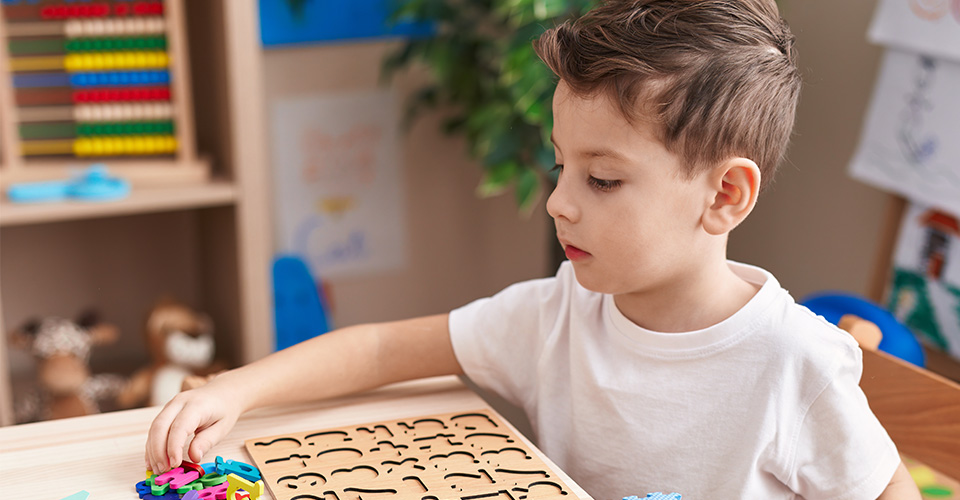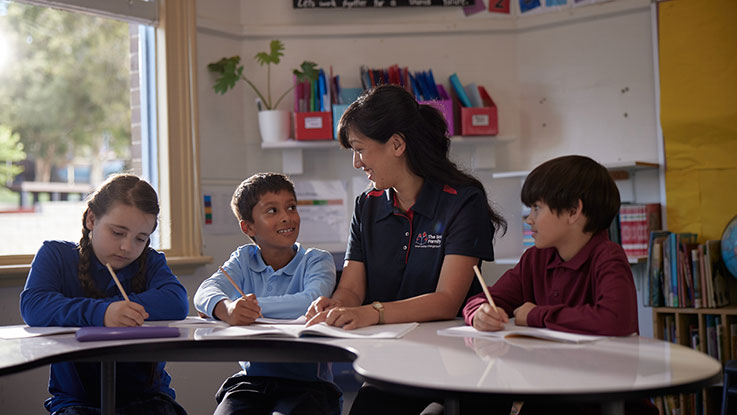
Helping your child build strong numeracy skills

Numeracy is more than just maths.
Why numeracy matters
Numeracy helps children:
- solve problems
- understand money
- measure and compare things
- make decisions
- do well in school and later in life
Strong numeracy skills help children feel confident and capable. They use these skills in school, at home, and in the future, at work.
Easy ways to support numeracy at home
You don’t need to be a maths expert to support your child. Here are some easy ways to help:
- Talk about numbers: Use numbers when cooking, shopping, or planning a trip.
- Play games: Try board games, card games, or puzzles that use counting or strategy.
- Ask questions: “How many do we need?” or “What’s the best deal?” helps kids think.
- Use everyday maths: Let your child help with measuring ingredients or budgeting.
- Be positive: Show that maths can be fun and useful.
Even small moments can help your child feel more confident with numbers and maths.
Curious about your child’s numeracy skills? NAPLAN can help
Worried about your child's numeracy skills?
If you're concerned, you're not alone. Help is available. You can talk to:
- Their teacher: They can share how your child is going and suggest ways to support them.
- The school's learning support team: They may offer extra help or assessments.
- Your Family Partnerships Coordinator: They can provide guidance and support. They can also connect you with any educational support programs that may be available for your child.
Asking for help early can make a big difference.
Helpful resources for families
Here are some places to find tips, tools and activities to support numeracy at home:
- School newsletters and websites: Often share ideas for learning at home.
- Public libraries: Offer books, games, and learning programs.
- Online resources: Explore websites with free maths games and advice for families:
- Mathematics Hub: Games, activities, and tools to help parents support maths learning.
- Learning Links – Parent Maths Program: A free online program for parents of children in Years 1–2 who struggle with maths. Includes videos, guides, games, and a supportive Facebook group
- Education NSW : Find downloadable booklets, videos and translated resources.
- Learning Potential: Australian Government site with tips, articles, and videos to help parents support learning at home.
Ask your child's school if they recommend any other websites or apps.
Remember
We are here for you!

Your Family Partnership Coordinator is here to support you through each stage of your child's educational journey.
They can support you to problem-solve any challenges that may come up that affect your child's education.
They can also connect you to educational support programs or services in the community if you decide that's what you need.
You can find your Family Partnership Coordinator's contact details in My Smith Family.
End of article
Related articles
Key takeaways
- Everyday activities like cooking, shopping and playing games can help build your child's confidence with numbers and maths.
- If you're concerned about your child's numeracy, support is available through their school and your Family Partnership Coordinator.
- Your encouragement and involvement, even in small moments, can make a big difference.


